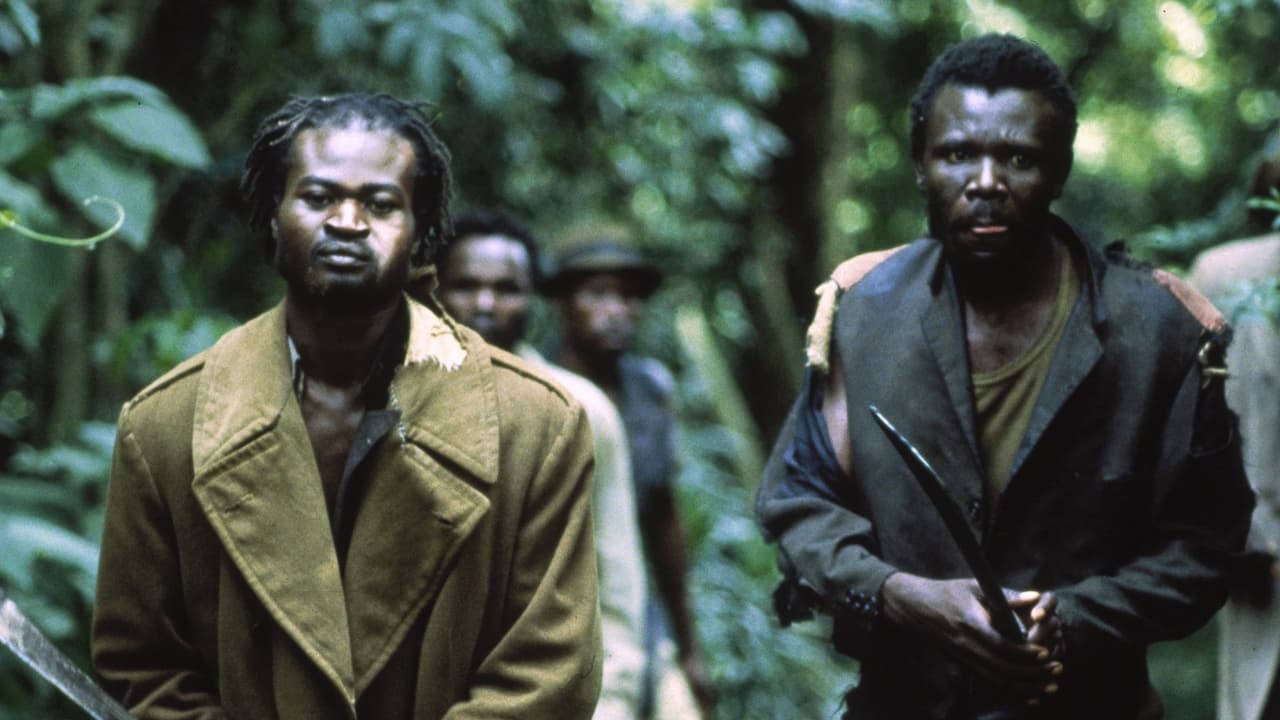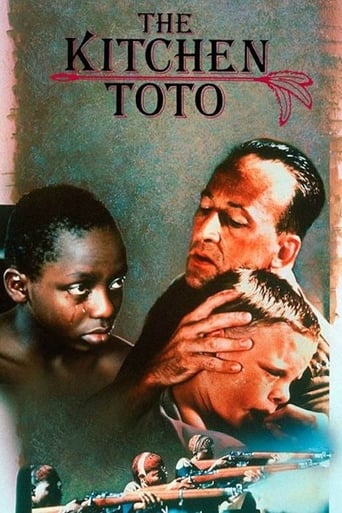Skunkyrate
Gripping story with well-crafted characters
Breakinger
A Brilliant Conflict
WillSushyMedia
This movie was so-so. It had it's moments, but wasn't the greatest.
Billie Morin
This movie feels like it was made purely to piss off people who want good shows
martys-7
A houseboy befriends his white master's son in 1950s Kenya while marauding rebels plan murder and mayhem.The brilliance of this movie is how it manages to tell a story involving children whose innocence and purity will be compromised by the imploding colonial world, white colonialists living a comfortable yet deluded life by exploiting native Kenyans, and murderous rebels whose raging savagery will not spare innocent lives.Poignant, deep, unflinching, well-acted, perfectly photographed, this is a minor masterpiece not to be easily forgotten. Its story may be a footnote yet it presents the elements that fueled African rebellion and shaped the future politics of sub-Saharan nations. A must see.
Kellylovescake
Just finished watching this movie. Would have to disagree with the description. Mwangi doesn't "move in" with the police officer's family. He "moves in" to the slave quarters to be a "paid slave" in order to earn money. This movie was made in the late '80's, I would have sworn it was from the '70's. I like how they cast authentic Africans, the Masai are very beautiful, and others complete with stretched out earlobes! I was glad the mother got shot and when the father was trying to keep that Hitler Youth boy hush hush, I thought he was going to tell the boy to blame it on Mwangi. Typical!! But he didn't. Very depressing with a surprise ending. Don't buy this movie unless the actor who played Mwangi gets royalties. :)
Michael Neumann
In the pidgin English of colonial Kenya a 'toto' is a native house servant, who in this modest but sobering drama is an innocent Kikuyu boy involved more or less against his will in the bloody Mau-Mau rebellions of the early 1950s. To its credit the story is told largely from the young toto's point of view, suggesting the uncertainty of a servant caught between his duty to an equitable master (the local white police chief) and a deeper loyalty to his own tribe (even though it was a fellow Kikuyu who murdered his Christian father).But like its young hero the film itself is often inscrutable, and sometimes dispassionate to the point of ambiguity, in particular concerning the relationship between the toto Mwangi and the policeman's creepy young son. The feature film debut for writer director Harry Hook is an honest if somewhat restrained effort, the final success of which is hampered by its limited means. This was one of the Cannon Film Company's rare prestige projects, but the entire budget was probably less than Chuck Bronson's catering bill for their 'Death Wish IV', released the same year.
Lee Eisenberg
Before I saw "The Kitchen Toto", I had never known about life in Kenya back when it was still an English colony. The movie portrays Mwangi, a boy whose preacher father gets murdered by the Mau Mau revolutionaries in 1950. Mwangi goes to work as a servant for police officer John Graham (Bob Peck) and his wife Janet (Phyllis Logan). Among other things, while this family looks like the average kindly British family, Janet is the most dour person imaginable; so it's no surprise that John is having an affair with the wife of his best friend. But when the revolutionaries kidnap Mwangi and make him swear allegiance to their cause, a potentially explosive situation arises.Probably the most relevant scene is the message during the closing credits. In 1952, Kenya's colonial government declared a state of emergency (which of course means no civil liberties of any kind). In the ensuing war, about 80 Europeans and 14,000 Africans were killed. Aside from the obvious fact that those numbers mirror the numbers that came out of Vietnam and now come out of Iraq, it just gives one a sense of how colonialism totally screwed up the whole world. Because of colonialism, we see so many of the conflicts in the world today.I wouldn't be surprised if, back in the '50s, England's government used European deaths in Kenya to try and justify the occupation of that country, and also said things like "We have to fight them there so that we don't have to fight them here." Anyway, I really recommend this movie.

